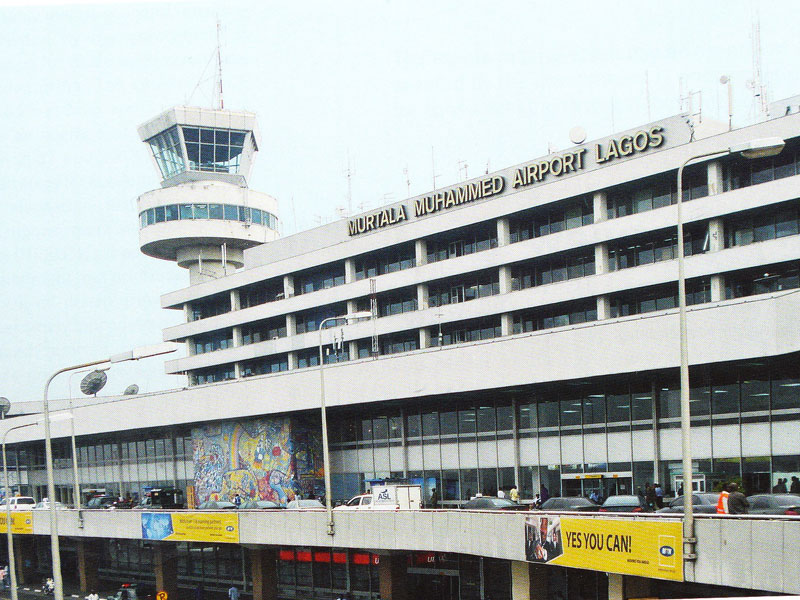Barely 24 hours after the aviation workers’ union demonstrated against the planned concession of four viable airports out of 22 across the country, the Federal Government has said there was no going back on the process.
The airports in contention include the Lagos, Abuja, Kano and Port Harcourt.
According to government, it could no longer sustain the funding of the 22 airports across the country.
It also assured that the process would be transparently done with the workers fully involved in the process.
Minister of State for Aviation, Sen. Hadi Sirika, stated this while reacting to the resistance by Workers of the Federal Airports Authority of Nigeria (FAAN) under the aegis of the Air Transport Service Senior Staff Association (ATSSSAN) and the National Union of Air Transport Employees (NUATE) to the plans by government to concession the Lagos and Abuja Airports.
The minister said the Murtala Mohammed Airport for instance was original built to handle 200,000 travelers per annum but today it’s serving eight million per annum, stressing that the government does not have the resources to upgrade the facilities to handle the increased volume of travelers.
From the body language of the government, it is no longer keen in the floatation of a new national carrier or a flag carrier.
Industry observers say the logic that the growth of Lagos Airport in terms of upgrade and management has surpassed government’s capacity lacks merit as globally, what is usually handed over to private investors are collapsing enterprises and not performing ones.
In an interview, leading aviation analyst, Cosmas Okereafor argued that government needs to be very careful as it would have been better to concession the unviable airports for the country to make more money rather than meddling with the affairs of the already developed airports.
He said “The genuineness of this intension for me still lies in the womb of time. Even at that what is on the lips of everybody if you may ask, particularly the stake-holders in industry is that, government, since it has the capacity, should ameliorate the challenges in the industry caused by the absence of either a Flag Carrier or National Carrier if at all the country should take its prime position and compete effectively in the global aviation scene”.
“This is necessary and certainly will complement activities of the fewer airlines, already trying to give good account of themselves despite noticeable challenges in the industry, 14 years after Nigeria Airways Limited (NAL), was liquidated. Of all the airlines that operate today in the country, it is only Arik and Medview airlines that operates regionally and continentally too. But if recent move by Ethiopian Airlines to acquire Arik succeeds, Nigeria will be left with only Medview Airlines on the continental route.
Analysts say Nigeria may have attained commendable high level safety rating through the reforms that have taken place virtually in all the airports across the country, but the point remains that, many of our airports are underutilized due to fewer number of airlines currently operating in the country.
Interestingly too, the viable airports as they are referred to: Lagos, Abuja, Port-Harcourt and Kano unfortunately service the other airports from the little resources at their disposal.
The implication is that, the frontline airports are always in dire financial stress. Besides, over concentration by airlines on the afore mentioned routes already developed in the past certainly will not promote such booms anticipatory from the industry, unless the government addresses the issues affecting airlines growth and route development with emphasis on how to open up other airports for profitability, necessary also for investment opportunities.
Business Hilights recalls that in the past, over 16 Airlines, both cargo and passenger, namely: Aviation Development company (ADC), Air Nigeria, Al-barka, Afrijet, Okada Air, Chanchangi, Bellview, EAS, Harka Air, IRS, Triax, SoSsoliso, Slok, Fresh Air, Capital Air, Discovery and the liquidated Nigeria Airways all competed with each other on these so lucrative routes until one by one each of them closed shops due to forces beyond their control. The surviving airlines today: Azman, Aero, Dana, Arik, Air Peace, Medview and Overland Airways. All these airlines too, equally concentrates their operations on the already identified and developed routes with the exception of Over Land Airways that has remained visible on the Ilorin and Akure routes since it started operation.
Experts say in the past 30 years, 25 airlines have collapsed in Nigeria, and that each of the defunct airlines operated between 5-6 years with the exception of Chanchangi and Bellview that lasted for more than 10 years.
The recent consensus of aviation experts is that the successive demise of airlines is linked to harsh government policy.








